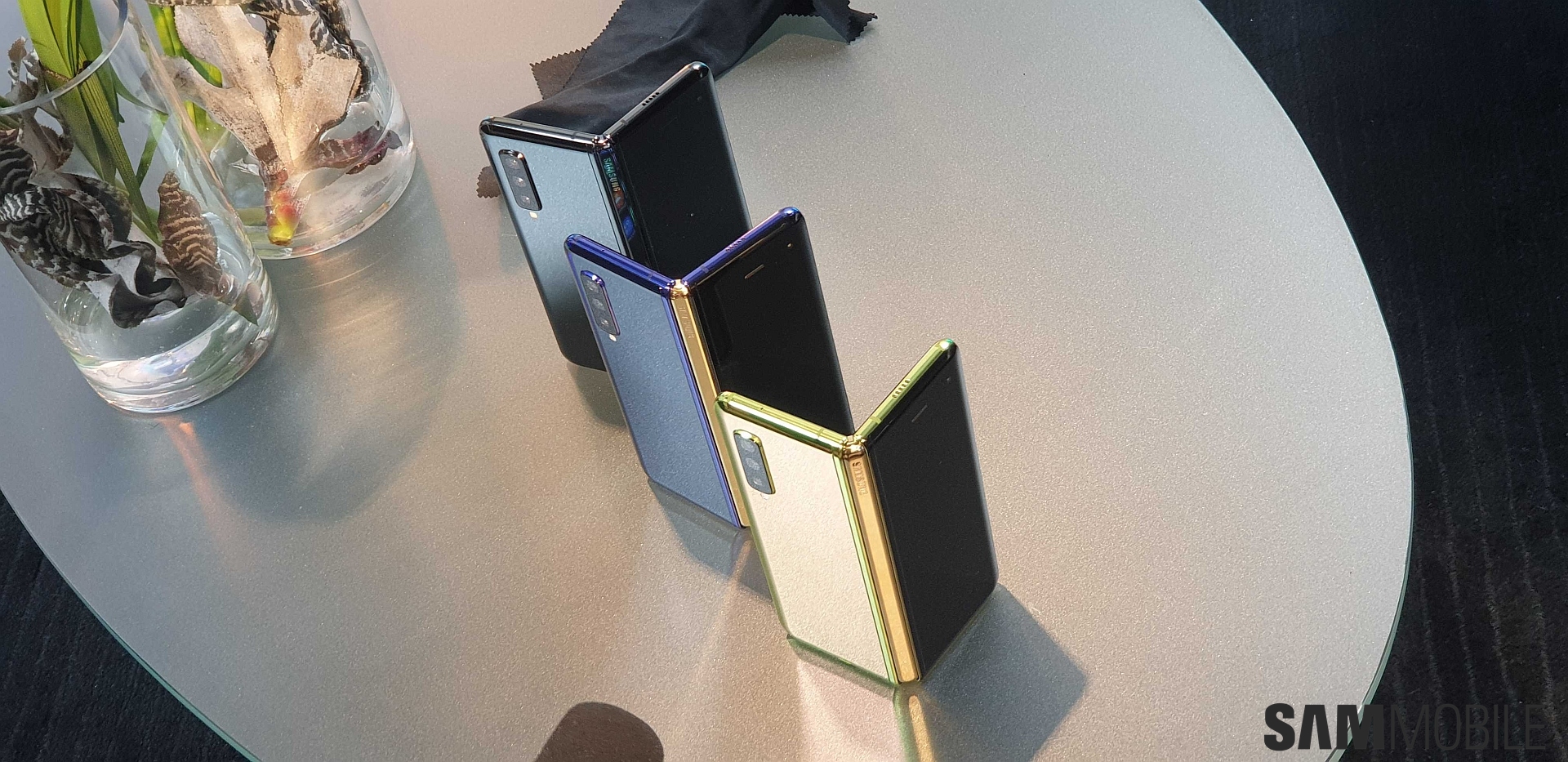Back when the Galaxy Fold was first unveiled, and a couple of weeks before it was supposed to go on sale, SamMobile HQ in the Netherlands received a review unit of Samsung's foldable phone. It was just one device, and our boss Danny was the one who had the privilege of using the Fold before it was unceremoniously recalled by Samsung once word of some review units breaking got out.
In our Galaxy Fold review, Danny had mentioned he was surprised at how good battery life was compared to the Galaxy S10+, thanks to the Snapdragon 855 inside the Fold. No one from the SamMobile team lives in a country where Samsung sells Snapdragon variants of its flagship phones, so it was quite the surprise for us to finally see the better efficiency of Qualcomm's Snapdragon chips in action on a flagship Galaxy device.
The Exynos 9820 SoC inside the Galaxy S10 lineup is an 8 nm chip, not a 7nm one like the Snapdragon 855. We had high hopes the Galaxy Note 10+'s 7 nm Exynos 9825 would do wonders and that it would be at par with the Snapdragon 855 when it comes to power efficiency. Well, the Note 10+ can certainly last a long time on a single charge. But, it turns out the Galaxy Fold is still more efficient, and that's making me jealous of all of my colleagues who decided to — after selling off a kidney or two — get Samsung's foldable phone now that it's gone on sale.
Keep the folding display, just give me the Snapdragon 855
I'm not really jealous of them owning a Galaxy Fold. I'm not the kind of person who could provide the Fold with the level of care a first-generation foldable phone requires. What is turning me green is the fact that they all now own a flagship Galaxy with a Snapdragon SoC at its heart. All of the Galaxy S10 and Galaxy Note 10 reviews from US publications have better battery life figures than any of us with our Exynos-powered devices have managed to achieve. While the difference isn't huge, it still makes us wonder what benefit Samsung's in-house chipset offers to us as consumers who paid top dollar for their phone.
Samsung is no doubt saving plenty of moolah by using its in-house chip in most countries, but that doesn't change the fact that consumers in markets where the Snapdragon versions of Galaxy flagships are sold are getting the superior deal as far as battery life is concerned. And before the Fold came along, it was pretty much a level playing field for all of us here at SamMobile. Now, with the Fold in the picture, that's not the case.
Now, Samsung's reported layoff of its entire CPU dev team at its R&D Center in Austin suggests the Exynos SoC will never be the same again. Samsung is reportedly thinking of using ARM's standard CPU cores instead of developing its own custom cores based on the ARM architecture. Perhaps that will mean efficiency of future Exynos chips will be better, that it will be closer to the efficiency of Qualcomm's custom CPU cores that drive the Snapdragon 855.
But until that happens, I will continue to believe we're getting the short end of the stick with these Exynos-powered Galaxy S and Galaxy Note devices. And, well, I'll also be jealous of everyone at SamMobile who is using the Galaxy Fold, only finding solace in the fact that their €2000 foldable phone charges at a meagre 15W, the same as a budget Galaxy phone that costs almost six times less.






